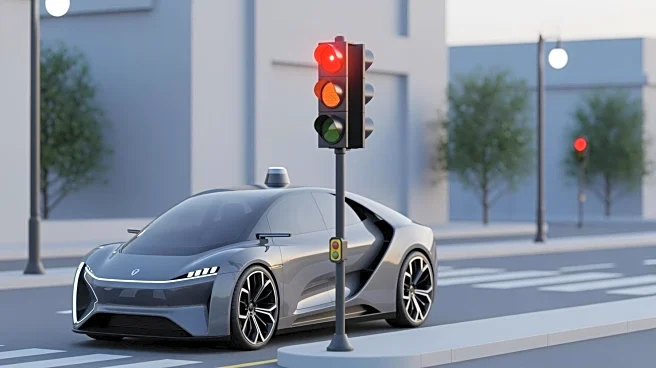What's Happening?
Tesla is currently under federal investigation by the National Highway Traffic Safety Administration (NHTSA) due to reports that its Full Self-Driving (FSD) software has violated multiple traffic laws.
The investigation follows at least 18 complaints involving Tesla vehicles using the self-driving feature, which allegedly ran red lights or veered into opposing lanes, leading to at least six crashes, four of which resulted in injuries. The NHTSA's Office of Defects Investigation has highlighted incidents where the software failed to stop at red lights, remain stopped, or correctly identify traffic signals. In one notable incident, a Tesla vehicle reportedly continued through a red light and was involved in a crash. Other complaints describe Teslas crossing double-yellow lines, entering oncoming traffic, or making incorrect turns. The investigation aims to determine if Tesla provided adequate warnings or opportunities for drivers to take control before these unexpected maneuvers occurred.
Why It's Important?
The investigation into Tesla's FSD software is significant as it raises concerns about the safety and reliability of autonomous driving technologies. The outcome could have substantial implications for Tesla's reputation and the broader autonomous vehicle industry. If the NHTSA finds that Tesla's software is at fault, it could lead to recalls, fines, or stricter regulations on self-driving technologies. This situation also highlights the ongoing debate about the readiness of autonomous vehicles for widespread use and the responsibilities of manufacturers in ensuring safety. Stakeholders such as consumers, regulatory bodies, and other automotive companies are closely watching the investigation's progress, as it may influence future policies and consumer trust in self-driving technologies.
What's Next?
The NHTSA will continue its investigation to assess whether Tesla's FSD software provided sufficient warnings or opportunities for driver intervention. Depending on the findings, Tesla may face regulatory actions, including potential recalls or updates to its software. The investigation's outcome could prompt other automakers to review their autonomous driving systems to ensure compliance with safety standards. Additionally, the findings may lead to increased scrutiny and possibly new regulations governing the deployment of self-driving technologies. Tesla's response to the investigation and any subsequent actions will be critical in shaping the future landscape of autonomous vehicles.










